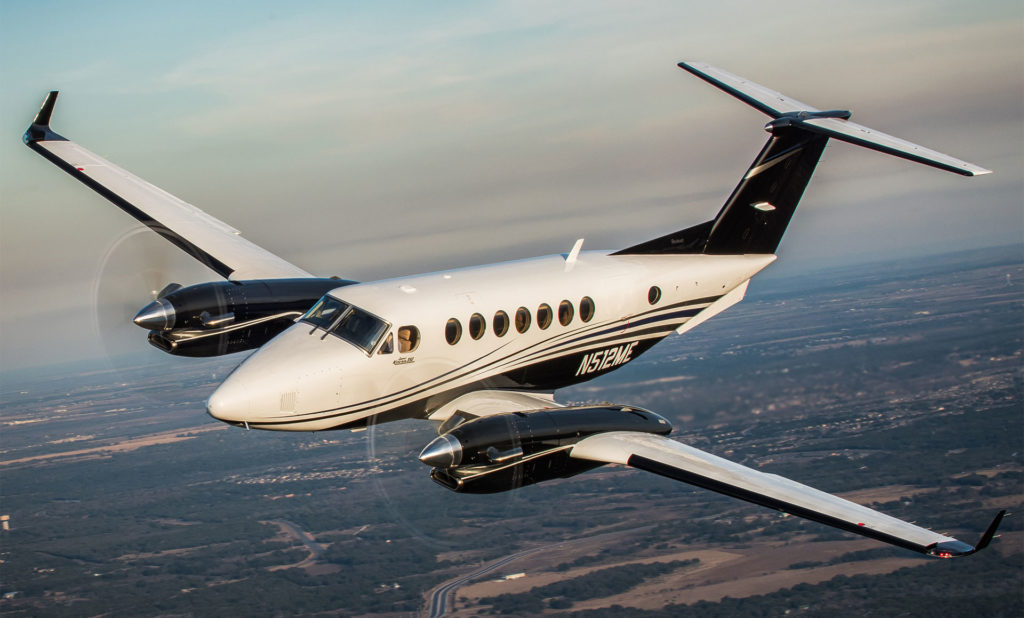Beech King Air 300 vs Rivals: Unveiling Its Uniqueness
In the realm of turboprop aviation, the Beech King Air 300 stands as a paragon of engineering excellence and versatility. This aircraft, part of the renowned King Air series, has earned a stellar reputation for its performance, reliability, and adaptability. As aviation enthusiasts and professionals alike continue to scrutinize the merits of various aircraft, the King Air 300 consistently emerges as a preferred choice among turboprop aircraft. This article delves into the unique attributes of the Beech King Air 300 and examines how it measures up against its rivals.
Beech King Air 300: A Leader in Turboprop Aviation

The Beech King Air 300 has long been celebrated as a leading model in the realm of turboprop aircraft. Its design builds on the legacy of the King Air series, incorporating improvements that enhance both performance and comfort. The aircraft is equipped with two powerful Pratt & Whitney Canada PT6A-60A engines, which provide an exceptional blend of efficiency and horsepower. This allows for a maximum cruise speed of 313 knots and an impressive range of over 1,500 nautical miles, making it ideal for both short hops and longer journeys.
Passenger comfort is another hallmark of the King Air 300. The cabin is spacious and can be configured to accommodate various seating arrangements, catering to both business and leisure travelers. With advanced noise-canceling technology and refined aerodynamics, the aircraft ensures a smooth and quiet ride. The King Air 300 also comes with modern avionics, providing pilots with state-of-the-art navigation and safety features that enhance operational confidence and precision.
The aircraft’s versatility is further underscored by its ability to operate from shorter runways and in a wide range of weather conditions. This adaptability makes it a favored choice for charter services, corporate travel, and even medical evacuations. Its rugged design and proven track record in diverse environments have solidified the King Air 300’s status as a leader in the turboprop market.
Rivals Compared: What Sets the King Air 300 Apart

When comparing the Beech King Air 300 to its rivals, such as the Pilatus PC-12 and Cessna Caravan, several distinguishing features set it apart. While the Pilatus PC-12 is celebrated for its single-engine efficiency, the King Air 300’s twin-engine configuration affords it greater power and redundancy, factors that are crucial for many operators prioritizing safety and reliability. Additionally, the King Air 300’s superior speed and higher service ceiling offer advantages in terms of time savings and operational flexibility.
The Cessna Caravan, another notable competitor, is often lauded for its cargo capacity and versatility. However, the King Air 300 excels in terms of passenger comfort and speed, catering to those who value luxury and efficiency in equal measure. Moreover, its sophisticated avionics suite and advanced safety systems provide an edge in terms of pilot confidence and operational safety that some single-engine models may not fully match.
Furthermore, the King Air 300’s reputation for durability and its established support network enhances its appeal among operators. The robust maintenance infrastructure and the availability of parts and services worldwide ensure minimal downtime, reinforcing the aircraft’s reliability. These aspects, coupled with the aircraft’s performance and comfort, make the King Air 300 a compelling choice when measured against its competitors in the turboprop domain.
The Beech King Air 300 stands out as a bastion of versatility, performance, and reliability in the competitive world of turboprop aviation. With its powerful twin-engine design, superior speed, and luxurious cabin, it consistently outpaces rivals in critical areas that matter to discerning operators. Whether for corporate travel, charter services, or specialized missions, the King Air 300 delivers a unique combination of attributes that are hard to surpass. As turboprop aircraft continue to evolve, the King Air 300 remains a benchmark of excellence and a testament to Beechcraft’s enduring legacy in aviation.



